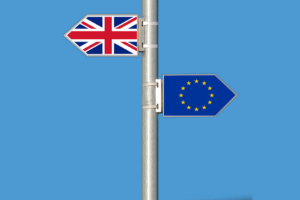Opinion
Danish Capital in 2017: Exposed in the Eurozone
Neil Smith
This article is more than 8 years old.

The roadmap irreversibly changed in 2007, not 2016 (photo: Pixabay)
Brexit only got a short airing at the recent European Council, with British Prime Minister Theresa May told that her proposal on the rights of EU nationals should be presented to the commission’s designated negotiator.
In a subtler way, however, Brexit was omnipresent. With the unprecedented shock of a member leaving and a new, reformist president elected in France (partly as a counter?), countries are now contemplating what was previously unthinkable, and the debate as to the consequences going forward is well and truly under way – with important consequences for Denmark.
Eurozone shake-up
French President Emmanuel Macron has repeatedly made it clear that he wants the Eurozone to look more like a traditional currency area, with a central budget, finance minister and perhaps even bonds. Eurobonds have previously been anathema to the Germans – but this month Chancellor Angela Merkel made comments about opening the door to a central budget.
This is important for two reasons: firstly, it is a big step in itself; secondly a logical consequence of a central budget is centrally-issued bonds (Eurobonds), as it would be politically easier to raise money this way than from contributions from each country’s finance ministries.
Euro shakes growing
For Denmark the danger is that deeper integration of the Eurozone means that its 19 countries become synonymous with the EU itself – this risk is heightened by Brexit given that the UK was by far the biggest EU economy outside of the Eurozone.
There is a real risk, therefore, of EU policies being designed to favour (in either principle or practice) the other EU countries. If this sounds unfair, then the EU could reply that all countries currently outside the Eurozone have a legal obligation to join – except Denmark.
A friend in France
In another sense, President Macron’s election is much better news for Denmark. The EU has typically been divided between an open market northern European mentality (including Denmark and the UK) and a more dirigist southern Europe. Typically, France would be the leader of this group and Brexit could tip the balance in their favour.
This is countered by the fact that Macron is not a typical French politician and has openly called for deregulation in the French economy. This should help ensure that the internationalist, free markets voice remains strong in the EU despite the UK’s departure.

About
Neil Smith
Neil is a Scottish-educated lawyer with 15 years’ experience in corporate structuring and general commercial matters. Based in Copenhagen, he primarily advises on international deals. Out of the office his interests include sport and politics. His column explores topical international financial and economic issues from a Danish perspective.










































